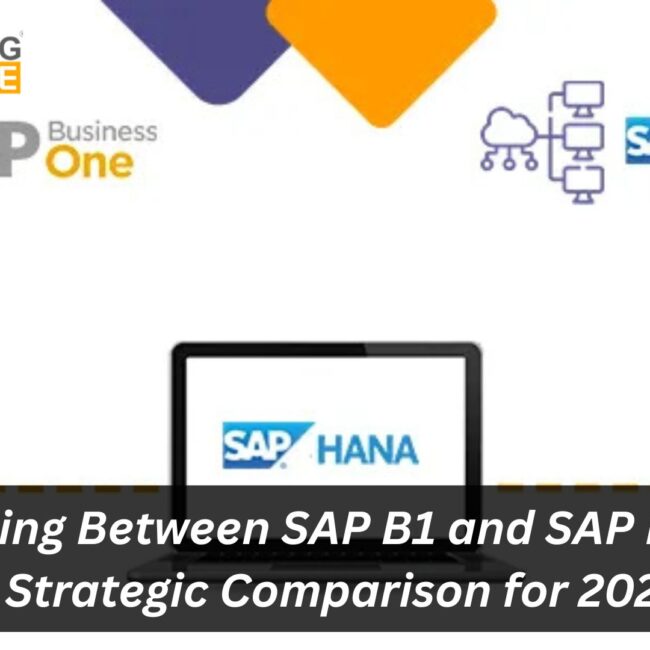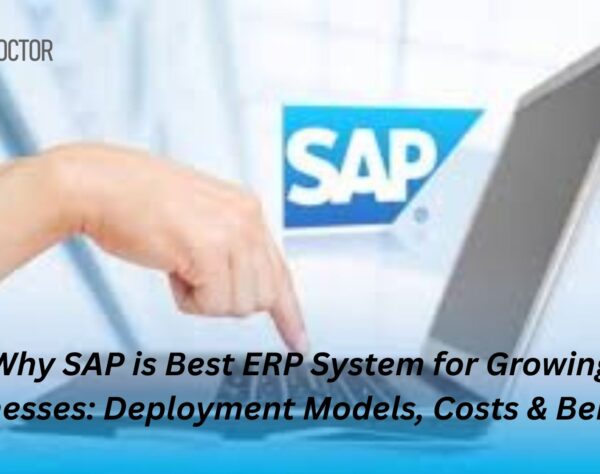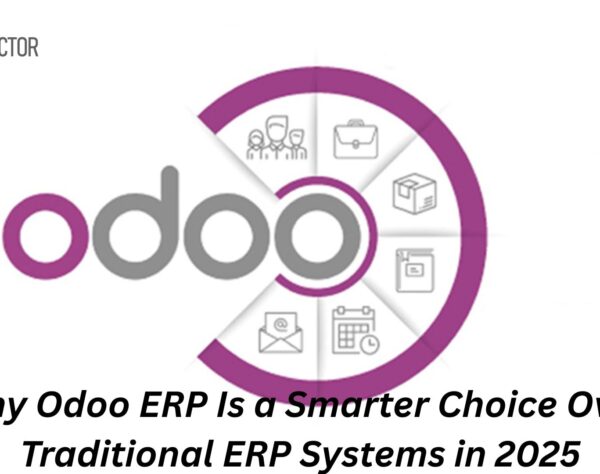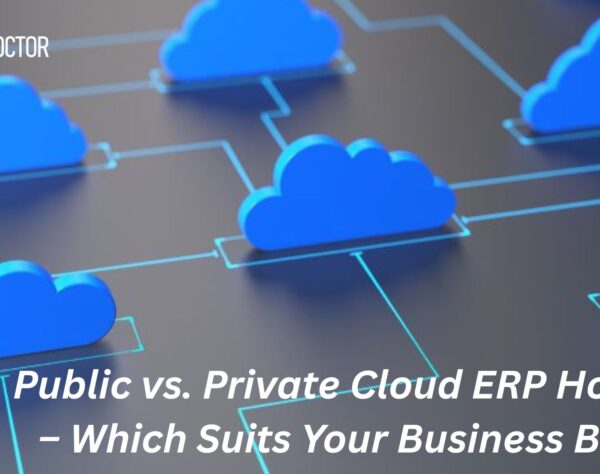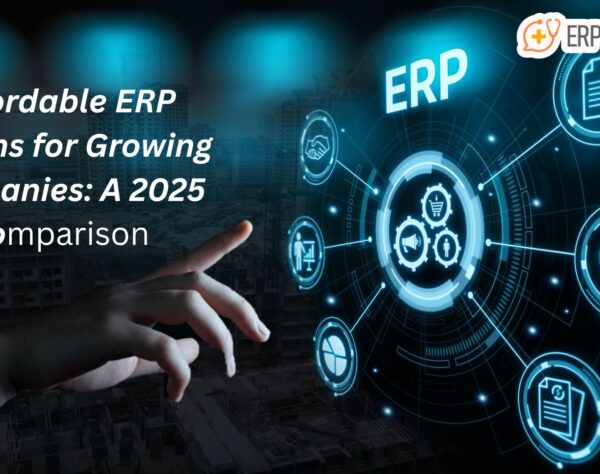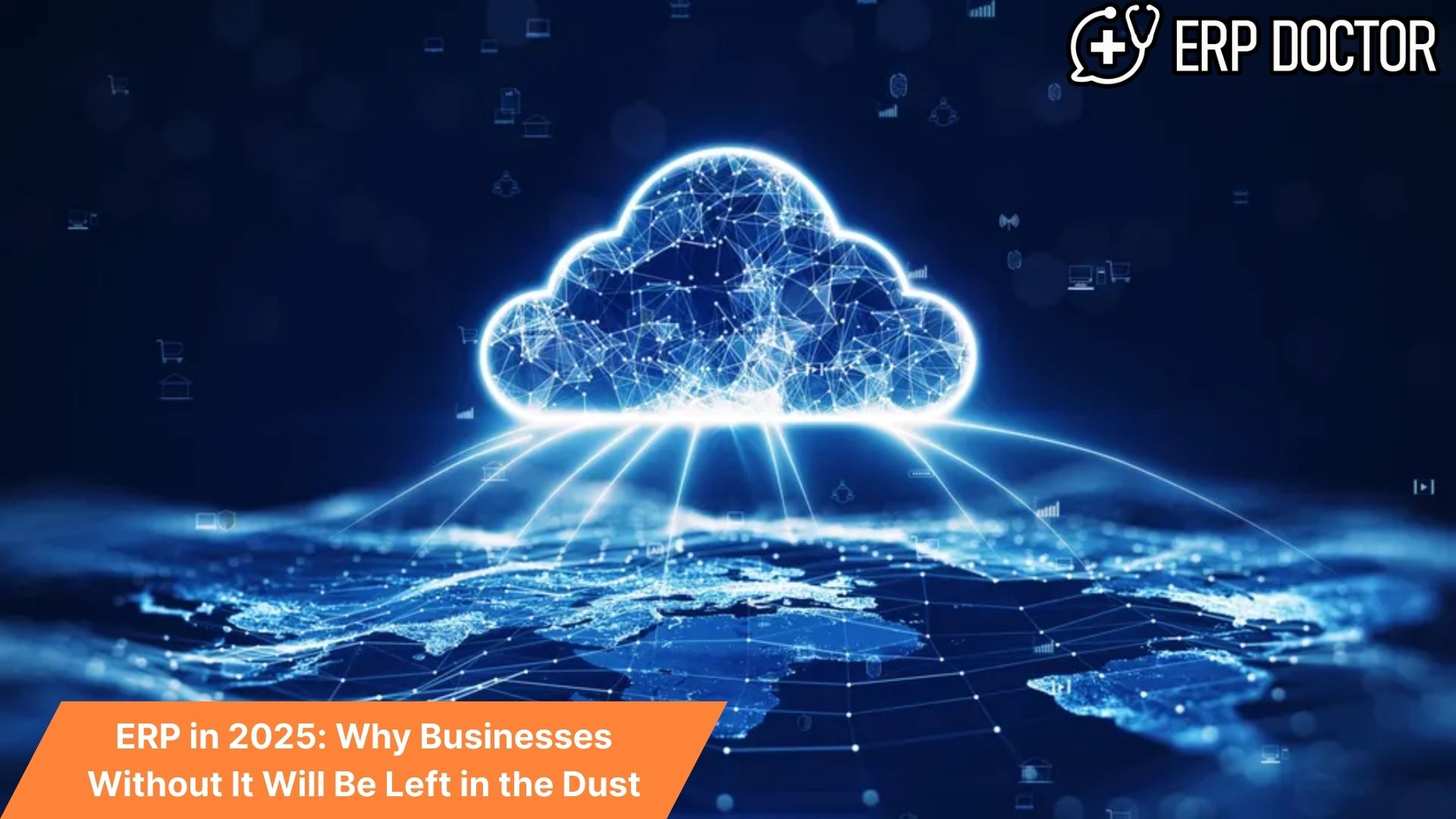
ERP in 2025: Why Businesses Without It Will Be Left in the Dust

ERP in 2025: The Competitive Edge You Can’t Afford to Ignore
As 2025 approaches, the business landscape is experiencing a digital awakening. Artificial intelligence, real-time data, and customer expectations are reshaping how companies operate. Amid this transformation, ERP—Enterprise Resource Planning—is emerging as the cornerstone of success. In 2025, businesses that haven’t embraced ERP risk being left behind, bogged down by inefficiencies, missed opportunities, and a lack of agility.
The value of ERP is no longer a topic just for IT or finance departments. It’s a boardroom discussion. ERP systems in 2025 are smarter, faster, and more connected, offering businesses the ability to manage complex processes, improve decision-making, and deliver personalized experiences. Let’s explore why ERP is not optional—it’s mission-critical.
Why ERP Is Critical for Success in 2025
The pace of business in 2025 leaves no room for slow systems or disjointed workflows. Companies that rely on spreadsheets or disconnected software tools will struggle to keep up with real-time demands. ERP systems provide a unified digital core that ensures data consistency, automates workflows, and streamlines operations.
Here’s why ERP will be indispensable in 2025:
- Unified Platform: ERP consolidates data from various departments, breaking silos and enabling a 360-degree view of operations.
- Faster Decision Making: Real-time dashboards and predictive analytics empower leaders to act quickly and with confidence.
- Regulatory Compliance: ERP simplifies compliance reporting, tax filing, and audit readiness through automated controls.
- Improved Customer Experience: ERP supports customer service by providing accurate, timely data on orders, inventory, and billing.
- Cost Efficiency: By optimizing inventory, production, and resource allocation, ERP helps reduce waste and operational costs.
What’s New in ERP in 2025?
Modern ERP solutions in 2025 are designed to be agile, intelligent, and user-friendly. Unlike legacy ERP systems that were complex and rigid, today’s platforms are built for rapid deployment and customization.
1. AI-Driven Intelligence
ERP systems now include AI to automate routine tasks, provide intelligent alerts, and recommend next-best actions. AI algorithms help with demand forecasting, fraud detection, and anomaly recognition.
2. IoT-Enabled Processes
ERP platforms can collect and analyze data from IoT-enabled machines, sensors, and devices. This helps businesses monitor production lines, optimize equipment usage, and detect issues before they escalate.
3. Real-Time Collaboration
ERP in 2025 fosters cross-functional collaboration with integrated communication tools. Teams can access shared dashboards, comment on records, and collaborate on projects within the platform.
4. Personalized Interfaces
Modern ERP systems offer role-based dashboards and interfaces, allowing users to focus only on the data and tasks relevant to them. This boosts productivity and user adoption.
5. Hyper-Connected Ecosystems
ERP integrates with CRM systems, HR platforms, e-commerce stores, supplier portals, and customer apps—making it the central nervous system of the business.
Industries That Can’t Thrive Without ERP in 2025
While all industries can benefit from ERP, some are particularly vulnerable without it. These include:
Manufacturing
Manufacturers must manage supply chains, optimize production schedules, monitor quality, and ensure timely delivery. ERP integrates every stage—from raw materials to final shipment.
Retail & eCommerce
Omnichannel sales require real-time inventory updates, unified customer data, and dynamic pricing. ERP enables seamless shopping experiences, regardless of platform or device.
Healthcare
Hospitals and clinics use ERP to manage patient records, scheduling, staff availability, procurement, and compliance with regulatory standards.
Construction & Engineering
Project-based industries rely on ERP for resource planning, budgeting, milestone tracking, and contractor management.
Food & Beverage
ERP ensures traceability, compliance with safety regulations, shelf-life tracking, and production planning in a fast-moving industry.
The Cost of Ignoring ERP in 2025
Choosing to operate without ERP in 2025 is choosing to fall behind. The competitive consequences are severe:
- Operational Delays: Manual processes lead to bottlenecks and missed deadlines.
- Inconsistent Data: Disconnected systems create conflicting information and reporting errors.
- Higher Costs: Inefficient resource use and process duplication inflate overheads.
- Customer Attrition: Delays in service, billing errors, or miscommunications can drive customers away.
- Inability to Scale: As companies grow, their systems must grow too. Without ERP, scaling becomes chaotic and unsustainable.
How to Choose the Right ERP in 2025
Not all ERP solutions are created equal. When selecting an ERP platform, businesses should evaluate:
- Industry Fit: Does the ERP offer modules tailored to your specific industry?
- Cloud Accessibility: Cloud ERP supports remote teams, mobile users, and automatic updates.
- Ease of Use: A user-friendly ERP boosts adoption and reduces training costs.
- Customization Options: Choose ERP with flexibility to match your workflows.
- Vendor Support: A reliable implementation partner ensures smooth setup and ongoing success.
The Strategic ROI of ERP in 2025
Implementing ERP is an investment, but the returns are measurable and transformative. Companies with modern ERP solutions report:
- Increased revenue through improved sales and customer service
- Reduced operational costs via automation
- Higher productivity across teams
- Faster product launches and delivery timelines
- Better risk management and financial control
ERP doesn’t just support your business—it becomes its backbone.
ERP in 2025: A Must-Have for Data-Driven Growth
In a data-driven world, ERP connects the dots. It brings together customer feedback, supplier timelines, inventory data, financial metrics, and employee productivity into one unified platform.
The businesses that will thrive in 2025 are not necessarily the biggest—but the most connected, intelligent, and agile. ERP is the enabler of that agility.
Whether you’re a growing SME or an established enterprise, one thing is clear: if you want to lead in 2025 and beyond, ERP isn’t just a nice-to-have. It’s your real competitive advantage.
FAQs
1: What makes ERP in 2025 different from traditional ERP systems?
Modern ERP in 2025 includes AI, IoT, cloud-native architecture, and real-time analytics, unlike traditional, static ERP systems.
2: Can ERP help with remote work and hybrid business models?
Yes, cloud-based ERP enables remote access, mobile workflows, and decentralized team collaboration.
3: Do small businesses need ERP in 2025 or just large enterprises?
ERP in 2025 is designed for businesses of all sizes, including scalable solutions for startups and SMEs.
4: How does ERP improve customer experience in 2025?
ERP connects sales, support, and service data, enabling faster, more personalized customer interactions.
5: What role does ERP play in sustainability reporting?
ERP systems track energy usage, waste, and supply chain metrics, helping businesses meet ESG goals.
6: How secure are ERP systems in 2025?
ERP in 2025 features advanced cybersecurity, role-based access, and real-time threat detection.
7: Can ERP integrate with third-party apps like Shopify, Slack, or Salesforce?
Yes, modern ERP offers API-based integration with most popular business applications.
8: Is ERP useful for non-profit organizations in 2025?
Absolutely. ERP helps manage grants, donors, volunteers, and compliance efficiently.
9: How quickly can a business implement ERP in 2025?
With low-code platforms and pre-built modules, ERP can be deployed in weeks, not months.
10: What KPIs can ERP help track in 2025?
ERP can monitor cash flow, inventory turnover, customer satisfaction, employee productivity, and more.



